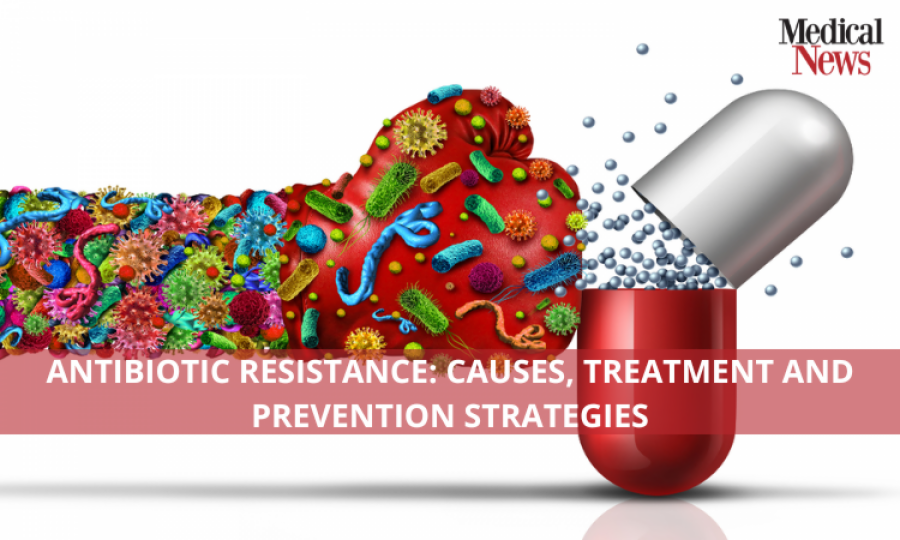Antibiotic Resistance: Causes, Treatment and Prevention Strategies

One of the rising healthcare problems of recent times is antibiotic resistance. Antibiotics are used to treat bacterial infections. Disease-causing bacteria, due to the improper use of medication, acquire resistance to the medicine. These antibiotic-resistant bacteria can also be transferred from one person to another. This phenomenon can be extremely dangerous for the community as it limits treatment options.
Causes
The following factors play a role in antibiotic resistance:
● Overuse of antibiotics:
This includes the use of antibiotics when they are not required or helpful, leading to resistance. For example, antibiotics cannot treat viral infections.
● Misuse of antibiotics
Bacteria are looking out for opportunities to multiply and grow. If medication is skipped a day or more, treatment is stopped too soon, or incorrect medication is taken, bacteria can reproduce. During their multiplication, they can mutate. Mutated bacteria are more likely to be resistant to antibiotics.
● Agricultural use
In animals, bacteria can also become resistant to antibiotics as it is widely used for livestock.
● Spontaneous resistance
At times, the genetic makeup of a bacteria changes on its own. As the antibiotic cannot recognize this new bacteria, it fails to target it properly. The change can also make the bacteria more resistant to the drug's effects.
● Transmitted resistance
Drug-resistant bacteria can be contagious, meaning they can be passed from one person to another.
Impact
According to a global analysis in 2019 on the impact of antimicrobial resistance (AMR), resistance itself caused about 1.27 million deaths and antimicrobial-resistant infections played a part in 4.95 million deaths. Moreover, the World Health Organization has recognized AMR in their list of top 10 global public health threats facing humanity.
Due to increasing antibiotic-resistant drugs, treatment options are limited. This can lead to several problems:
● High risk for severe, extended illness and death
● Serious side effects of medication
● Longer duration of hospital stays
● More doctors appointments
● Increased medical costs
● Immunocompromised patients, like those with AIDS and cancer, may suffer from increased complications.
● Possibility of diseases being untreatable due to multiple drug-resistant strains
● Surgical procedures may become riskier to carry out
Treatment
If a person is showing signs of antibiotic-resistant bacteria, the physician may prescribe a different drug. However, this new drug may have more severe side effects and trying a new drug also increases the risk of developing resistance.
Prevention
● Limit unnecessary prescription and over-prescription of antibiotics. Examples include when doctors may prescribe antibiotics for conditions that do not require them or when people expect doctors to give antibiotics for viral infections.
● Correctly use the prescribed medication by fully completing the course, even if the person feels better, for the best efficacy and reduced potential of resistance.
● Do not take unprescribed medication.
● Do not use medications prescribed for somebody else.
● Do not save old medicines for future use. Instead, discard them when the course ends.
● Practice good hygiene, like handwashing, and proper infection control in hospitals and homes.
● A complete course of vaccinations can help prevent diseases that would require the use of antibiotics.
Trending
Popular
Sindh pledges vigorous action to prevent poliovirus transmission
-
PMA stresses health equity on World ...
04:08 PM, 9 Apr, 2024 -
Dow University’s new rabies vaccine ...
12:18 PM, 28 Mar, 2024 -
IRD role lauded in advancing ...
02:53 PM, 12 Mar, 2024 -
Over one billion people worldwide ...
09:48 AM, 5 Mar, 2024




